INTERNACIONAL
Justice Barrett opens up about ‘awkward’ start on SCOTUS, shadow docket and more in forthcoming memoir
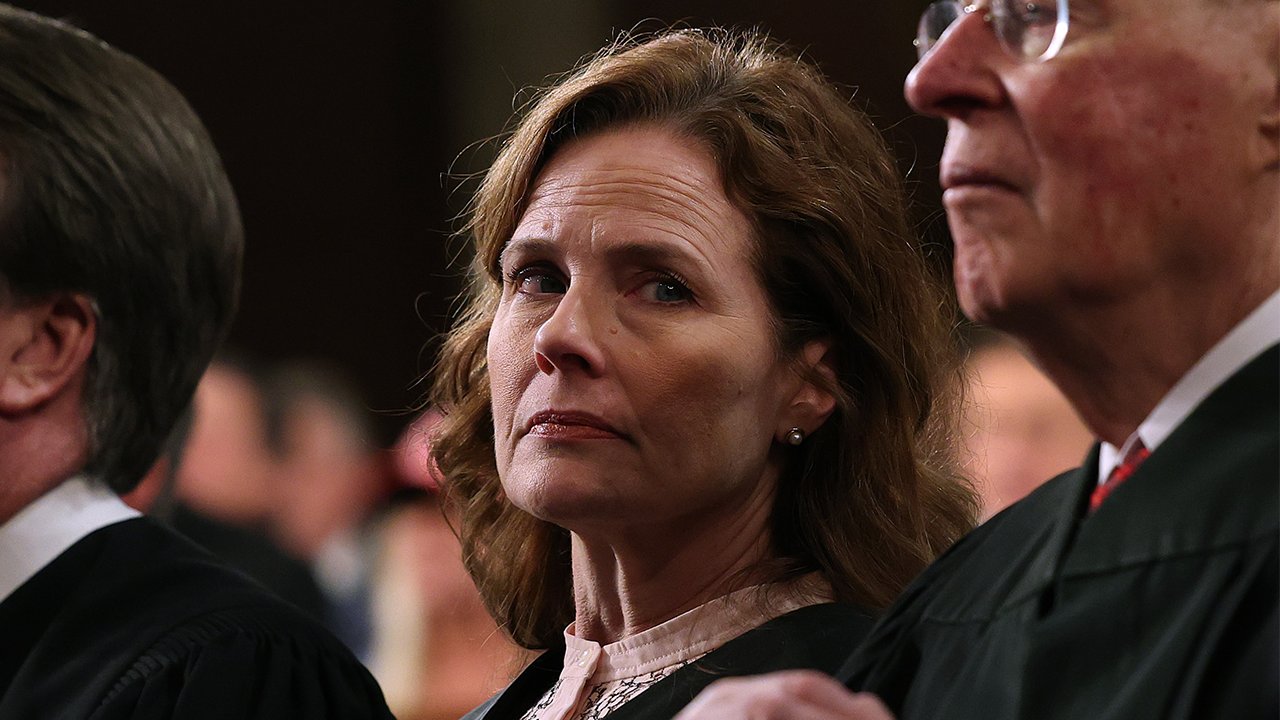
NEWYou can now listen to Fox News articles!
NEW YORK – Supreme Court Justice Amy Coney Barrett hasn’t seen The Handmaid’s Tale. But she was well-prepared to be interrupted by any number of red-draped protesters, should they storm in to interrupt her confirmation hearing, the same way they did for her colleague, Brett Kavanaugh, several years prior.
As she recounted in an interview at the Lincoln Center Thursday night, the preparation had been for naught. Her confirmation took place behind closed doors, thanks to the COVID-19 pandemic and the social precautions in place at the time. It also made the lengthy confirmation process and her first days as a justice on the nation’s highest court «awkward,» she said, to laughter. «Very awkward.»
That revelation was just one of many Barrett made during a wide-ranging interview Thursday, just days before the publication of her forthcoming memoir, «Listening to the Law.»
Like her book, Barrett’s appearance proved to be as telling for what she didn’t say as for what she did.
JUSTICE BARRETT DEFENDS JACKSON JABS AS ‘WARRANTED’ IN RARE PUBLIC APPEARANCE
Supreme Court Justice Amy Coney Barrett stands with her husband, Jesse, on the front plaza of the Supreme Court building in Washington, D.C. (Al Drago/Bloomberg via Getty)
Barrett, 53, spoke easily about her family, her faith and the kindness of her newfound colleagues on the Supreme Court, whom she says lent her not only the use of their office supplies and bench memos during her first days on the job, but also temporarily dispatched their own staff to help her answer phones and restock supplies.
«There is an indispensable human element to judging,» Barrett observes in her memoir, something she says is all the more true when serving on a nine-person bench.
«Thinking in categories of left and right — it’s just the wrong way to think about the law,» she said Thursday night to the jam-packed audience at Alice Tully Hall.
Even so, Barrett artfully dodged some of the more polarizing issues the court has faced in the past eight months.
She was demonstrably less candid on questions involving the so-called emergency, or «shadow» docket, the vehicle by which President Donald Trump has sought to temporarily stay lower court decisions that would have paused or halted some of his most sweeping executive orders from taking force.
The Supreme Court has presided over a record blitz of emergency appeals and orders filed by the administration and other aggrieved parties during Trump’s first eight months back in office. Justices on the 6-3 conservative bench have ruled in Trump’s favor in the majority of emergency applications, allowing the administration to proceed with its ban on transgender service members in the military, its termination of millions of dollars in Education Department grants and its firing of probationary employees across the federal government, among many other actions.
The court has sided with Trump in the majority of these requests, prompting a fresh level of scrutiny — and rare public criticism from some of her colleagues on the bench.
The Supreme Court «is at its best when it can review cases that have been fully adjudicated» by the lower courts, she offered, before the conversation moved on.
BARRETT EVISCERATES JACKSON, SOTOMAYOR TAKES ON A ‘COMPLICIT’ COURT IN CONTENTIOUS FINAL OPINIONS
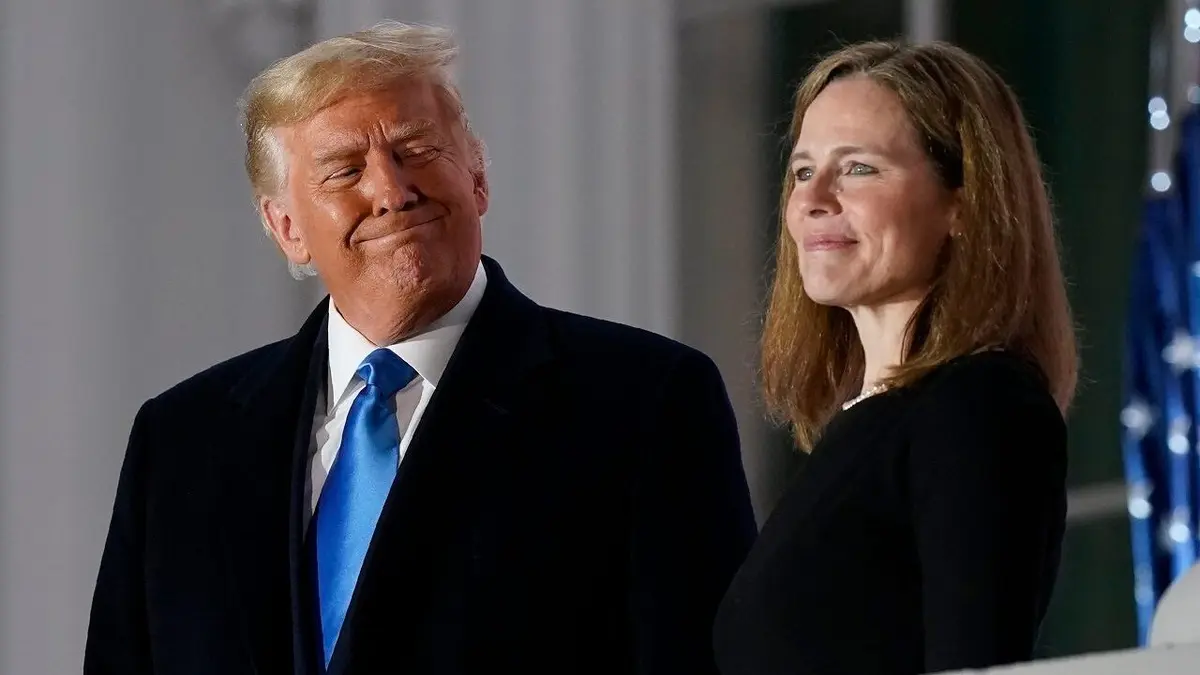
President Trump and Amy Coney Barrett on the balcony of the South Lawn of the White House in Washington, D.C., Oct. 26, 2020. (AP Photo/Patrick Semansky)
Barrett also sought to defend the court as a body that operates beyond the politics of a given moment, and (ideally) outside the reach of public opinion. She noted that public perceptions of what a judge ought to do is, at times, at odds with what the Constitution and existing Supreme Court precedent prescribe.
«I think everyone expects the court to deliver the results it likes,» Barrett said Thursday night. There’s a «disconnect between what people want in the moment» and what the court should deliver, she said.
People «want what they want,» and will inevitably be disappointed by the results, she said.
Like other justices who have authored memoirs while on the bench, Barrett offered a lofty and, at times, idealistic view of the court.
Pressed by journalist Bari Weiss about her majority opinion in Trump v. CASA earlier this year, Barrett insisted that her «spicy» remarks toward Justice Ketanji Brown Jackson were nothing more than an attempt to «set the calibration right.»
«I thought Justice Jackson had made an argument in strong terms that I thought warranted a response,» Barrett said.
CHIEF JUSTICE ROBERTS SOUNDS ALARM ON DANGEROUS RHETORIC AIMED AT JUDGES FROM POLITICIANS
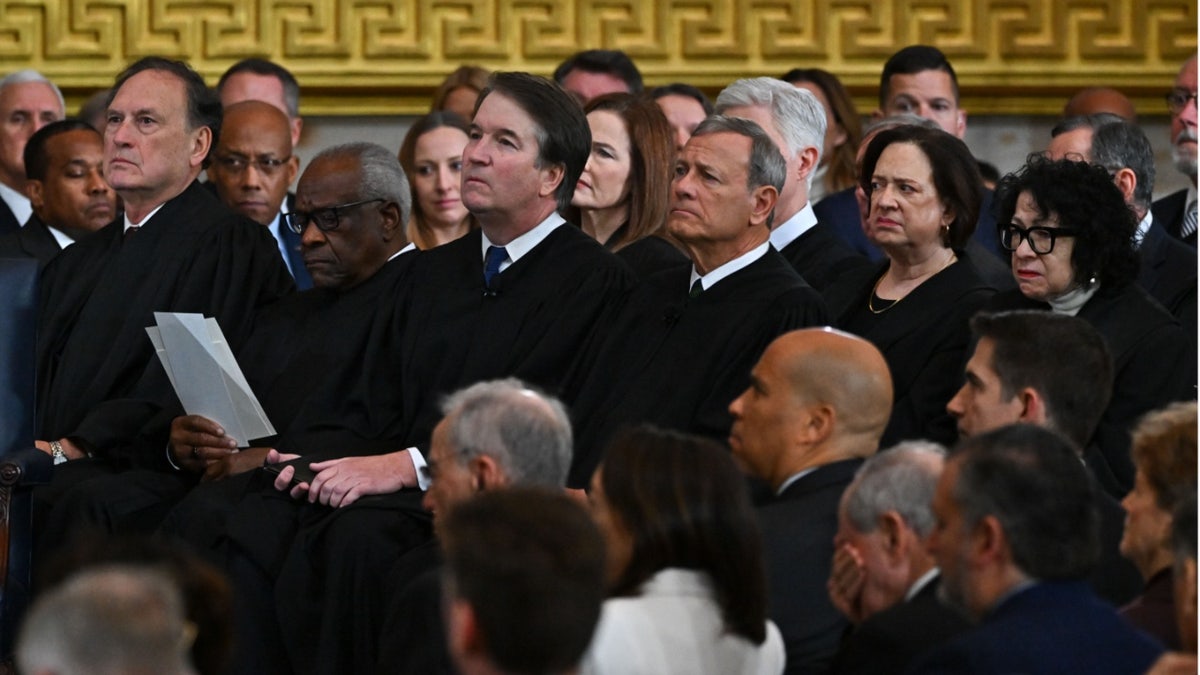
Supreme Court justices Samuel Alito, Clarence Thomas, Brett Kavanaugh, Amy Coney Barrett, John Roberts, Elena Kagan and Sonia Sotomayor attend the 60th inaugural ceremony Jan. 20, 2025, in Washington, D.C. (Ricky Carioti/The Washington Post via Getty Images)
Thursday night’s interview was the first of many public appearances Barrett is slated to give in coordination with her book release next week. It offered at times a refreshingly personal glimpse into her nearly five years on the Supreme Court, a job she says she wasn’t quite sure she wanted when the offer finally came.
Barrett recounted what her husband told her at the time, when she was weighing whether to go through with the confirmation process. Should she choose to move forward, he told her, «We have to burn the boats.»
The phrase, adopted from Alexander the Great, refers to the notion that one must eliminate all options for backup plans or retreat.
It was one she held onto during the confirmation process, when media outlets pilloried her as an out-of-touch and hyper-religious mother of seven, when quips from lawmakers, such as then-Sen. Dianne Feinstein — «the dogma lives loudly within you» — might have rattled her further.
CLICK HERE TO GET THE FOX NEWS APP
«To do the job well, you have to have thick skin,» she told the audience Thursday night.
She also dismissed fears of a constitutional crisis.
«I don’t think that we are currently in a constitutional crisis,» Barrett said. «I think that our country remains committed to the rule of law. I think we have functioning courts.»
supreme court,donald trump,politics,judiciary,federal judges
INTERNACIONAL
Newsom stop in key presidential primary state sparks more 2028 speculation
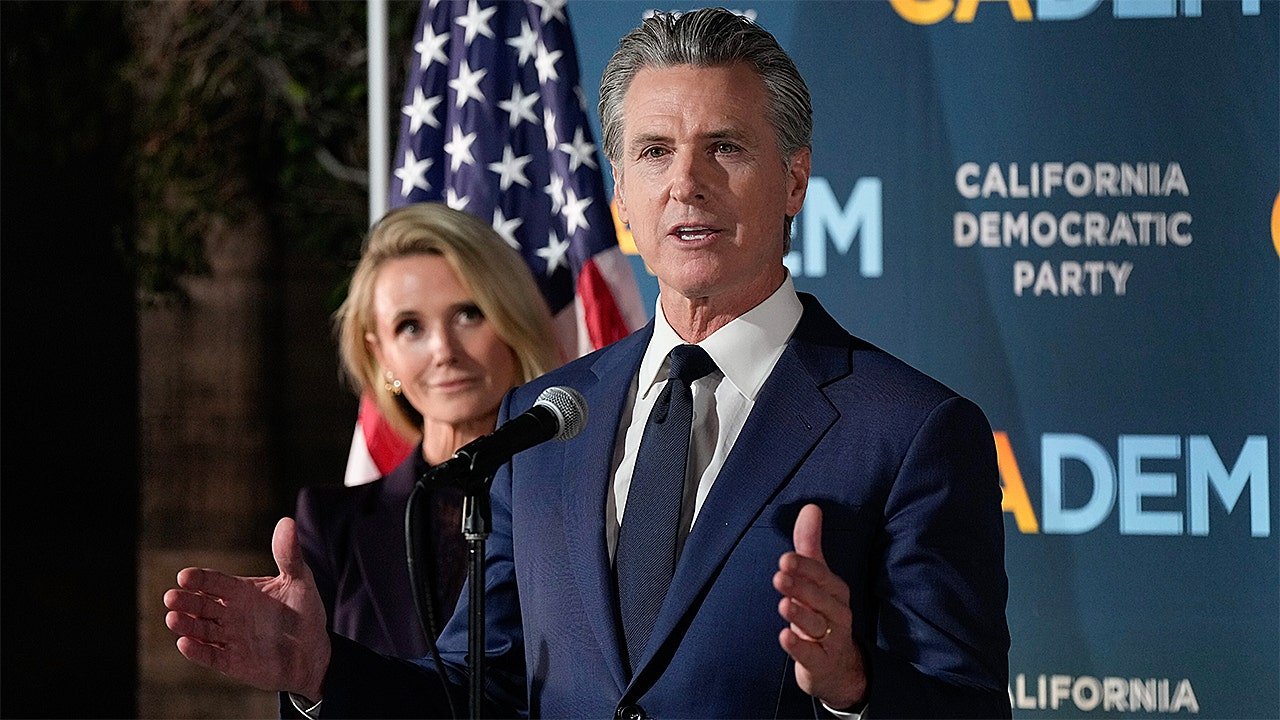
NEWYou can now listen to Fox News articles!
California Gov. Gavin Newsom’s book tour will take him early next month to New Hampshire, the state that’s traditionally held the nation’s first presidential primary for a century.
The Portsmouth Music Hall announced on Thursday that California’s two-term Democratic governor will present his new book, «Young Man in a Hurry,» on Thursday, at their theater on March 5.
It’s a sure bet that the stop along New Hampshire’s Seacoast will generate more buzz about Newsom’s national ambitions and the likelihood that he’ll launch a bid for the Democratic presidential nomination in 2028, in the race to succeed term-limited President Donald Trump.
Newsom’s stature in his own party has soared over the past year, thanks to his very vocal and visual pushback against the president, including his viral social media trolling of Trump and his successful California push to counter the Republican congressional redistricting effort.
THE 2028 WHITE HOUSE RACE IS ALREADY UNDERWAY
California Gov. Gavin Newsom speaks during an election night press conference at a California Democratic Party office Tuesday, Nov. 4, 2025, in Sacramento, Calif. (Godofredo A. Vásquez/AP Photo)
«Newsom has shown an ability to stand up to Trump in a bold and highly effective manner without shying away from core democratic values,» veteran Democratic strategist Joe Caiazzo told Fox News Digital.
Newsom was treated like a VIP as he held meetings and mingled with party delegates during the opening day of the Democratic National Committee’s (DNC) winter meeting, which was held in Los Angeles in December. And Newsom held meetings with the Democratic Party chairs from New Hampshire and Nevada, another crucial early voting state.
«We had a great discussion on a wide range of issues,» longtime New Hampshire Democratic Party Chair Ray Buckley told Fox News Digital.
DEMOCRATIC HEAVYWEIGHTS TURN HEADS, SPARK 2028 SPECULATION
Newsom has acknowledged that he’s mulling a presidential bid, telling CBS News last year he would «seriously consider» following the 2026 midterms and that he’d be «lying» if he said otherwise.
Newsom is one of more than a dozen Democrats viewed as potential 2028 White House contenders. And many of them have been paying visits to New Hampshire, Nevada, and South Carolina, which held the first sanctioned Democratic presidential primary in the 2024 election cycle. Newsom stopped in South Carolina last summer.
A New Hampshire-based Democratic strategist who asked to remain anonymous to speak more freely shared that he and other activists in the state for months have been receiving fundraising emails on a regular basis from some of the White House hopefuls.
«Every week I receive a dozen,» the strategist said.
VANCE AMPLIFIES HIS 2026 MESSAGE WHILE LANDING KEY 2028 BACKING
Kathy Sullivan, a former New Hampshire Democratic Party chair and former DNC committee member, told Fox News Digital that «successful candidates in New Hampshire start early here and get to know the activists. They find out what issues are important to people in New Hampshire.»
Sullivan said the early trips to New Hampshire by the potential contenders «show that they’re putting the work in to take the whole process seriously and know they need to do the hard work to win the primary.»
The California governor was last in New Hampshire in July 2024, to support then-President Joe Biden in the days after Biden’s disastrous debate performance against Trump. Newsom was a top surrogate for Biden, and later for then-Vice President Kamala Harris, who replaced Biden as the party’s standard-bearer after Biden dropped his re-election run amid questions about his physical and mental durability.

Democratic Gov. Gavin Newsom of California, a top surrogate for then-President Joe Biden, speaks with voters during a stop at a highway rest area in Hooksett, New Hampshire, on July 8, 2024. (Paul Steinhauser/Fox News )
Harris, a fellow Californian who is also currently on a book tour, is also mulling a potential 2028 presidential run.
CLICK HERE TO DOWNLOAD THE FOX NEWS APP
Among the other Democrats seen as possible presidential candidates are Govs. JB Pritzker of Illinois, Josh Shapiro of Pennsylvania, Andy Beshear of Kentucky, Wes Moore of Maryland and Gretchen Whitmer of Michigan; Sens. Cory Booker of New Jersey, Ruben Gallego and Mark Kelly of Arizona, and Chris Murphy of Connecticut; progressive superstar Rep. Alexandria Ocasio-Cortez of New York and Rep. Ro Khanna of California, another leading progressive; and two moderate Democrats, former Transportation Secretary Pete Buttigieg and former White House chief of staff and former Chicago Mayor Rahm Emanuel.
democratic party,democrats elections,gavin newsom,kamala harris,presidential primaries,new hampshire
INTERNACIONAL
Delcy Rodríguez aseguró que se realizarán elecciones “justas y libres” en Venezuela pero no fijó una fecha

La jefa del régimen de Venezuela, Delcy Rodríguez, aseguró en una entrevista con NBC News que está “absolutamente” comprometida a organizar “elecciones libres y justas” en el país, aunque precisó que la fecha de los comicios dependerá del diálogo político nacional.
En entrevista con la cadena estadounidense, Rodríguez respondió afirmativamente cuando la periodista Kristen Welker le preguntó si está dispuesta a celebrar elecciones.
“Absolutamente, sí”, declaró Rodríguez, según la traducción difundida por NBC News.
“Tendremos elecciones en este país justas y libres, por supuesto, como lo establece la Constitución”, añadió. Sin embargo, aclaró que el calendario electoral será decidido “por el diálogo político en este país”.
En la misma entrevista, Rodríguez confirmó que ha recibido una invitación formal para visitar Washington y que está dispuesta a concretar el viaje “una vez que establezcamos esta cooperación y podamos avanzar con todo”.
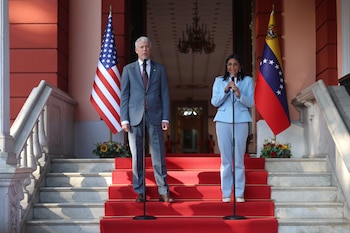
“Me han invitado a Estados Unidos. Estamos considerando ir allí una vez que establezcamos esta cooperación y podamos avanzar con todo”, señaló Rodríguez a NBC News.
La transición política venezolana ha estado marcada por la intervención de Estados Unidos, que ahora tutela la gestión de Rodríguez y exige la apertura del sector petrolero y la normalización institucional. El secretario de Energía de EEUU, Chris Wright, visitó Caracas esta semana y mantuvo una reunión con la líder chavista para abordar los próximos pasos del acuerdo energético y la hoja de ruta hacia la recuperación económica.
En declaraciones recogidas por The Wall Street Journal, Wright enfatizó que Venezuela atraviesa el inicio de una etapa de transición y que Delcy Rodríguez es consciente de que el proceso electoral es una condición necesaria para consolidar la cooperación.
“Estamos en las primeras semanas de un período de transición”, explicó Wright al periódico. Al ser consultado sobre la posibilidad de que Rodríguez acepte elecciones en un plazo de año y medio, Wright dijo: “Creo que sí. Ella es muy consciente de eso… Creo que reconoce que es una condición necesaria. Tenemos un plan. Ella conoce el plan”.
Delcy Rodríguez visitó junto a Chris Wright las instalaciones de una de las plantas que opera Chevron en la Faja Petrolífera del Orinoco, región que concentra las mayores reservas probadas de crudo en el mundo. Desde allí abogó por la eliminación de cualquier obstáculo en el acuerdo petrolero entre Venezuela y Estados Unidos.
“Chevron tiene más de 100 años en Venezuela y estamos haciendo un trabajo extraordinario, como socios que somos, mejorando producción, mejorando las instalaciones, la infraestructura y el mantenimiento y este es el camino de la cooperación”, afirmó.
Durante la entrevista con NBC News, Rodríguez reiteró que Maduro sigue siendo, a su juicio, el “presidente legítimo” de Venezuela. “Tanto el presidente Maduro como Cilia Flores, la primera dama, son inocentes”, afirmó.
La jefa del régimen chavista también respondió sobre la situación de la líder opositora María Corina Machado, premio Nobel de la Paz, quien se encuentra fuera del país.
Rodríguez advirtió que Machado “tendrá que responder ante Venezuela” si regresa y deberá explicar “por qué pidió una intervención militar, por qué pidió sanciones contra Venezuela y por qué celebró las acciones que tuvieron lugar a comienzos de enero”.
Enfatizó que, respecto a la seguridad de la opositora, no entiende “por qué hay tanto revuelo”, pero insistió en que deberá rendir cuentas ante la justicia venezolana.
El proceso de transición política ocurre junto a una serie de reformas económicas y legales. La Asamblea Nacional aprobó recientemente cambios en la Ley Orgánica de Hidrocarburos para facilitar la inversión extranjera y la participación de empresas estadounidenses en el sector energético, en línea con las exigencias de Washington para la recuperación económica del país.
(Con información de EFE y AFP)
Corporate Events,Diplomacy / Foreign Policy,South America / Central America
INTERNACIONAL
Americans could pay to bring back alleged members of ‘foreign terrorist cartel’ to US
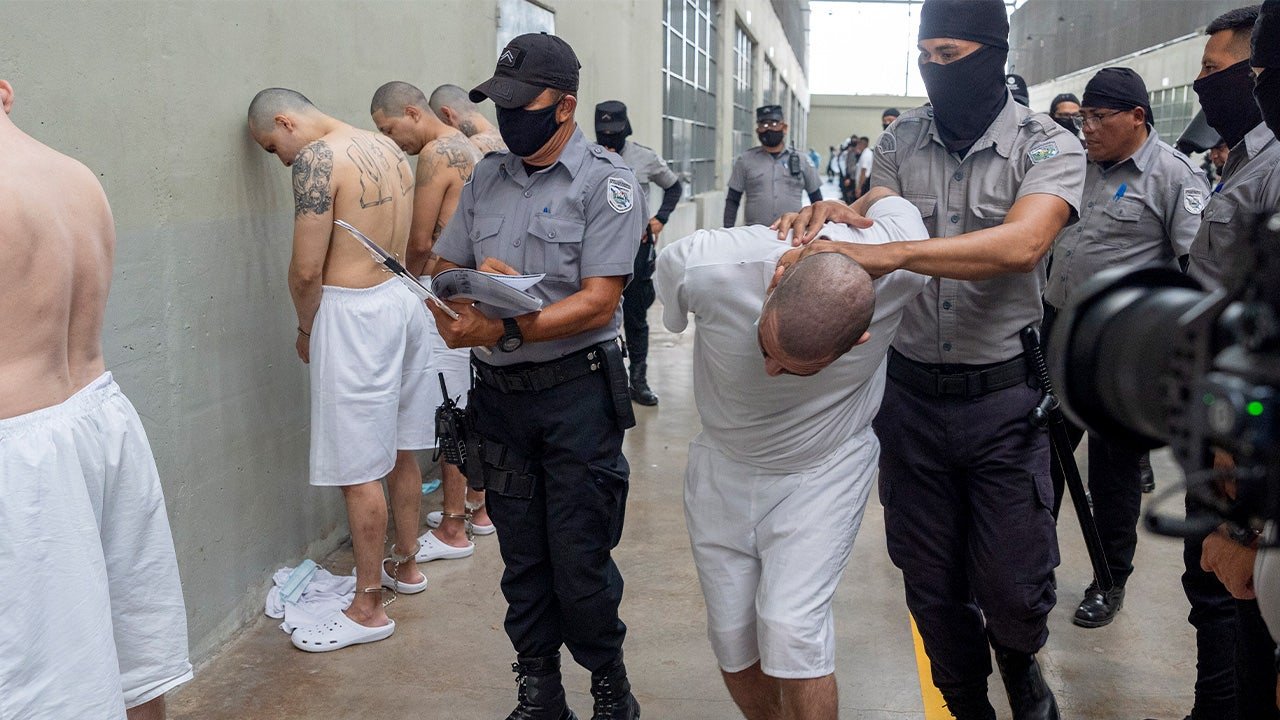
NEWYou can now listen to Fox News articles!
Alleged members of «foreign terrorist cartel» Tren de Aragua are set to be brought back to the U.S. after their deportations in 2025 — and it could come at taxpayers’ expense.
U.S. District Judge James Boasberg, who has repeatedly butted heads with the Trump administration, ordered the Trump administration on Thursday to facilitate the return of 137 migrants deported to a notorious prison in El Salvador in 2025, called CECOT.
Boasberg stipulated in his ruling that the government pay for the migrants’ airfare back to the U.S., meaning taxpayers are likely footing the bill.
Boasberg argued that it’s «unclear why Plaintiffs should bear the financial cost of their return in such an instance,» noting that, «this situation would never have arisen had the Government simply afforded Plaintiffs their constitutional rights before initially deporting them.»
FEDERAL JUDGE ORDERS DEPORTED VENEZUELANS TO BE RETURNED TO US
Courts rejected a misconduct accusation against Judge James Boasberg. (Associated Press)
The ruling comes as part of a nearly year-long saga, when the federal judge attempted to halt the Trump administration’s deportations of migrants to El Salvador under the Alien Enemies Act in March 2025.
The Supreme Court ultimately allowed the Trump administration to continue using the Alien Enemies Act to carry out deportations in April, but ordered that detainees receive notice and an opportunity to challenge allegations.
Boasberg has since been wading through legal avenues with the men in El Salvador, issuing a ruling in December that the Trump administration denied them their due process.
It is unclear how many of the men will actually take the offer and return to the U.S., with Boasberg noting that the noncitizens «would be detained upon arrival» back to the U.S.
Similar to Boasberg’s ruling, another federal judge this month ordered the Trump administration to pay for the return of three migrant families that the judge ruled ICE unlawfully deported by a 2023 humanitarian-parole settlement.
TRUMP ADMIN ASKS BOASBERG FOR MORE TIME TO DETAIL CECOT PLANS AFTER MADURO OUSTER

A prisoner is moved as Department of Homeland Security Secretary Kristi Noem tours the Terrorist Confinement Center (CECOT) on March 26, 2025 in Tecoluca, El Salvador. (Alex Brandon-Pool/Getty Images)
DHS Assistant Secretary Tricia McLaughlin told Fox News Digital on Thursday in response to the ruling that the illegal aliens in El Salvador were removed under proper legal authority, before taking a shot as Boasberg.
«Nothing has changed; in addition to being in our country illegally, these aliens are foreign terrorists designated as alien enemies by the President,» DHS Assistant Secretary Tricia McLaughlin told Fox News Digital when asked about the ruling.
TRUMP ADMIN SAYS MADURO CAPTURE REINFORCES ALIEN ENEMIES ACT REMOVALS
«They were removed under the proper legal authorities. This case is no longer about the facts or law, but about Judge Boasberg’s crusade to stop President Trump from doing the will of the American People. He has been shut down by appellate courts again and again on this case,» she continued.
Boasberg has become a prime target for Republicans over a string of rulings tied to Trump-era policies — including the Trump administration backing a potential judicial impeachment of the judge, and other «rogue» judges, in January.
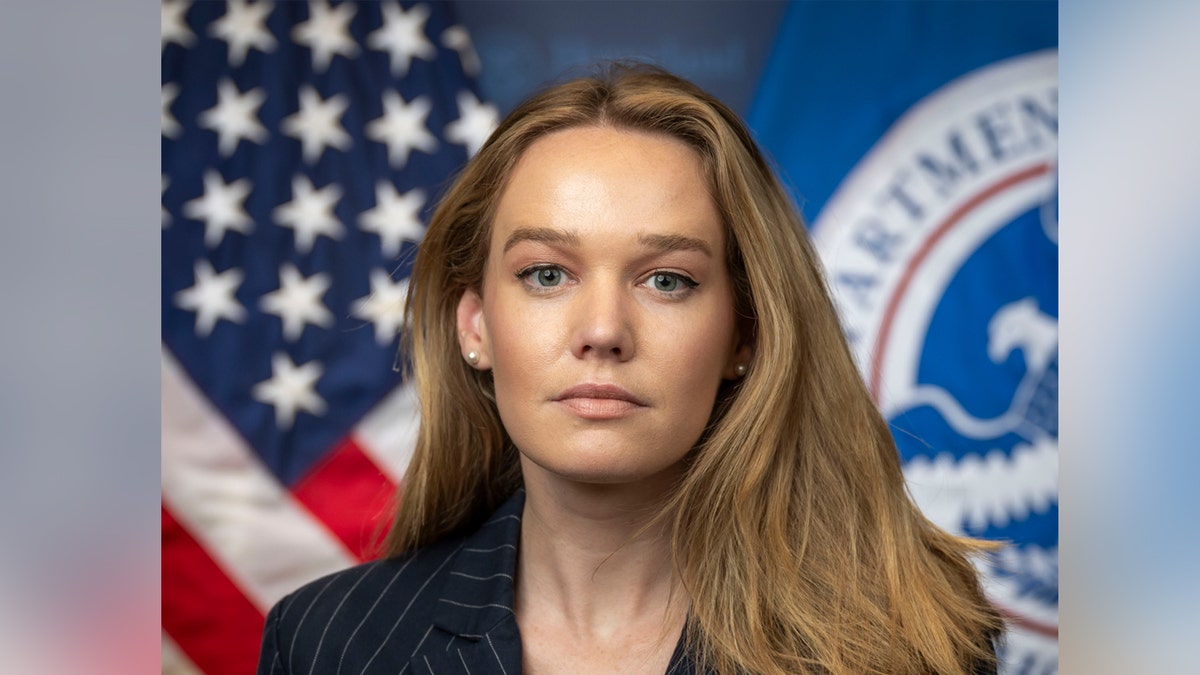
DHS assistant secretary for public affairs Tricia McLaughlin (dhs.gov)
The migrants in El Salvador were removed under The Alien Enemies Act, which is a 1798 wartime immigration law that the Trump administration invoked to deport violent gang members with alleged ties to criminal organizations, such as Tren de Aragua (TdA).
TdA, as well as MS-13, were additionally designated as Foreign Terrorist Organizations by the Trump administration’s State Department in February 2025.
The administration has described those deported to the notoriously secure prison in El Salvador as «violent savages» and terrorists who pose a threat to U.S. security.

A prisoner is moved as Department of Homeland Security Secretary Kristi Noem tours the Terrorist Confinement Center (CECOT) on March 26, 2025 in Tecoluca, El Salvador. (Alex Brandon-Pool/Getty Images)
A previous analysis of 238 migrants deported to El Salvador found six faced attempted murder, assault, armed robbery, gun possession or domestic battery charges in the U.S., the Texas Tribune reported in May 2025, while 32 other deportees had been convicted in the U.S. of crimes, many of which were nonviolent, according to the outlet.
CLICK HERE TO GET THE FOX NEWS APP
DHS has defended that deportees labeled «‘non-criminals» by the media are «terrorists, human rights abusers, gang members and more — they just don’t have a rap sheet in the U.S.»
immigration,illegal immigrants,homeland security,donald trump,politics

 POLITICA3 días ago
POLITICA3 días agoAcuartelamiento policial en Santa Fe: reclamo salarial y temor a un conflicto nacional de seguridad

 POLITICA2 días ago
POLITICA2 días agoLa advertencia de ATE a los gobernadores que apoyan la reforma laboral: “Firmarán su sentencia de muerte”

 ECONOMIA3 días ago
ECONOMIA3 días agoCuánto le cuesta a la clase media llenar el changuito y cómo varían los precios de los alimentos entre provincias
























